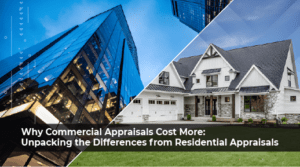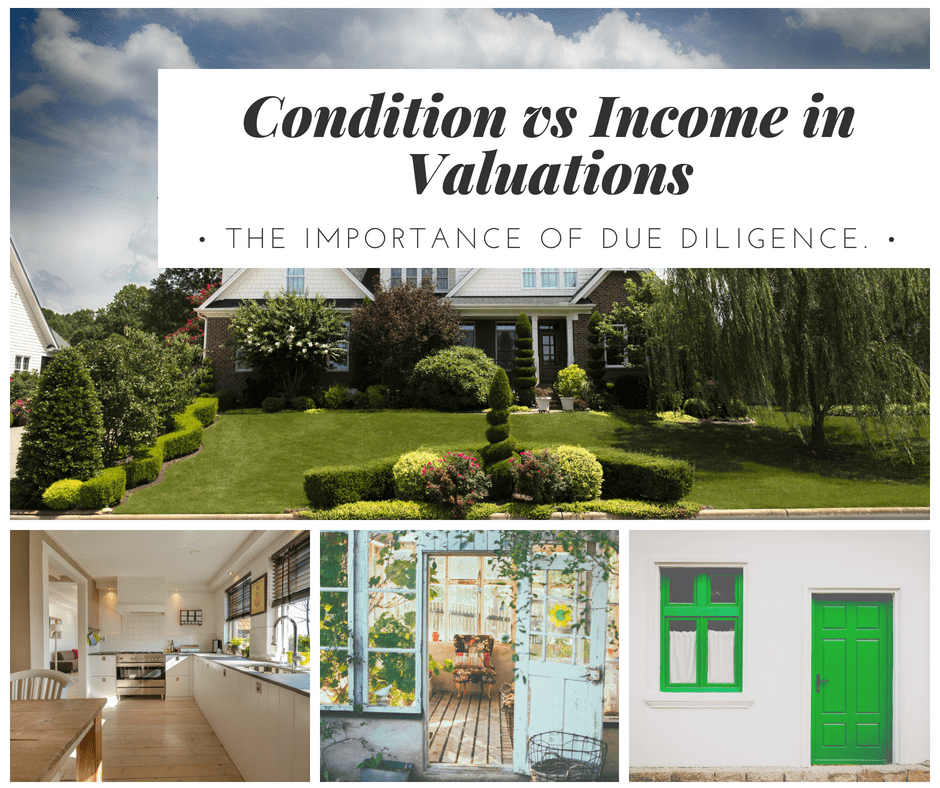If you are someone who has ever needed a real estate appraisal, you might have noticed quite a big difference in the cost between residential and commercial appraisals. While both serve the same basic purpose, that of valuing real estate properties, it should be noted that the cost of commercial appraisals will often be significantly higher. What, then, affects the price this differently? To examine this, we should break it down in simple terms.
Why do commercial appraisals cost more?
The real reason behind the higher cost of commercial appraisals is more due to the work involved. Residential appraisals are typically undertaken for single-family homes and smaller multi-family properties. For residential appraisals, sales of comparable homes can generally be found in the area, and this typically makes the appraisal of the property less difficult and time-consuming.
By contrast, commercial properties are of a far larger variety, starting with office buildings and shopping centers, all the way to warehouses and special use buildings. Each one of them has certain complexities whereby the determination of a value is more involved and isn’t just a question of simply looking at sales around the subject in question.
Factors That Influence the Cost of Commercial Appraisals
More data, more analysis
The residential property appraisal largely depends on recent comparable sales within the area, an analysis of area market trends, and the physical inspection of the property in question. This is quite an exhaustive process but usually quite straightforward, since there is often ample comparable sales data available.
For commercial properties, however, it’s another affair altogether. Appraisers need to look deep into the earning potential of the property, consider its present and future uses, understand and analyze the zoning laws, and analyze the financial health of the businesses operating there. Adding to this, data is much harder to find in the case of comparable sales or commercial rentals. This invariably means more time and effort are needed for the research required for producing a credible report, which drives up the cost of commercial appraisals.
Different strokes, more complications
In residential appraisals, the appraiser relies on what is generally referred to as the Sales Comparison Approach. Essentially, a value opinion is determined by comparing the subject property to similar ones that have sold recently in the same area.
Most appraisals for commercial purposes involve several approaches. As an example, the Income Approach considers the income a property can yield over a given time period. The cost of the property is estimated by the Cost Approach, which is particularly relevant in the case of subdivision or development appraisals. Subsequently, balancing the different methods among themselves and arriving at a final value has many more layers of complexity, which naturally increases the cost of commercial appraisals. There is also a question of various types of values: prospective values versus fair market values versus as complete values. All of these issues contribute to and further complicate a commercial appraisal.
Commercial appraisals also undergo much higher levels of scrutiny while also meeting regulations and reporting standards. The reports are generally more in-depth and must conform to specific industry guidelines, adding time and effort. Finally, they also involve higher stakes: these properties often deal with huge sums of money and higher earning potential. This means the risk of losing collateral is so much higher on all sides. In turn, this means that more information and analyses must be included in a commercial appraisal report.
These are some of the reasons why the cost of commercial appraisals is higher and why they take longer to finish. Understanding these differences will help you appreciate why commercial appraisals cost more and thereby help in making better decisions when dealing with commercial real estate.
Estimated Cost of Commercial Appraisals and Completion Times
So how does it all affect your wallet and timeline? As we said, one of the major cost factors—as well as the time needed to appraise—is the complexity of a commercial property. Commonly, a commercial appraisal takes anywhere from 2 to 6 weeks and may cost anywhere from $2,500 to $6,000, contingent on the depth of the report required.
Boston Appraisal Services knows how to navigate the complex issues that come with commercial properties and commercial appraisals. Using our extensive market knowledge, accumulated from an array of property types, we deliver comprehensive and accurate appraisals that meet industry standards and requirements. From the small professional offices to the large industrial complexes, we’ve got you covered. Count on Boston Appraisal Services when you need an accurate appraisal—on time and with the precision you have come to expect.
You can also click here to watch a video. For more related related topics, please click here.




Add your first comment to this post